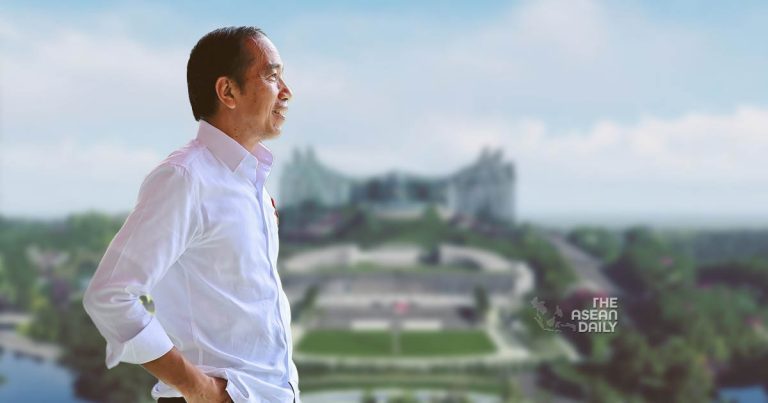16-8-2023 (JAKARTA) As Indonesian President Joko Widodo prepares to leave office next year after completing his term, one of the biggest questions surrounding his legacy will be the fate of his highly ambitious plan to relocate the nation’s capital from Jakarta to East Kalimantan. Known popularly as Jokowi, the president has staked much of his reputation on the proposed new capital city, dubbed Nusantara. However, as he prepares to hand over power to a new leader, serious doubts are emerging over whether the massive project can be fully realised.
The relocation of the capital has been billed as Jokowi’s signature policy achievement during his decade in office. Spread across 260,000 hectares, Nusantara is envisioned as a green, sustainable and technologically advanced city that will serve as a showpiece for Indonesia’s development. However, at an estimated cost of $34 billion, funding such an ambitious project poses major challenges. With few international investors showing interest so far, most of the bill would likely have to be footed by the Indonesian government alone. Such a heavy financial burden could divert enormous resources away from other pressing needs across the vast archipelago nation.
While Jokowi is determined to make progress on the relocation before he leaves office, partially opening the new capital city by 2024 as planned, analysts see increasing doubts over whether the full scale project can be completed. As Emeritus Professor Greg Fealy of Australian National University observes, once Jokowi is out of power his successors will have to take a close look at the viability and priorities for such a massive undertaking. The huge sums required could be better spent on infrastructure and development projects with more immediate impact, allowing more Indonesians to enjoy the fruits of economic growth. Whoever replaces Jokowi will inherit both its opportunities and challenges.
As he enters the final months of his presidency, Jokowi is keen to emphasise and take credit for the achievements of his time in office. He points to Indonesia’s strong economic recovery from the pandemic, with over 5% growth, rising employment and poverty reduction. Many Indonesians can clearly see improvements to roads, transport and living standards under his leadership. However, as Professor Fealy notes, a regrettable aspect is the intimidation of government critics and dissenters that was tolerated on his watch. Whoever succeeds Jokowi will shape whether Indonesia continues on its development path or risks democratic backsliding.
With presidential elections due in February and Jokowi exiting in October, the candidates vying to replace him are very much in focus. While keeping his own preferred choice close to his chest for now, there are signs Jokowi favours Defence Minister Prabowo Subianto, a two-time former presidential challenger from the Gerindra party. Subianto is considered someone who could protect Jokowi’s legacy in power. The incumbent president’s sky-high approval ratings of 82% also give his implicit endorsement significant influence in a tight race.
As Associate Professor Dirk Tomsa of La Trobe University observes, Jokowi’s emphasis on public trust being vital for leaders contains a subtle message to his potential successors. Of the main candidates, Prabowo is believed to be closest aligned with continuing Jokowi’s broadly nationalist, economically pragmatic policies. The lingering question is whether he can match Jokowi’s deft political touch and clean governance reputation. Anies Baswedan, former Jakarta governor, and Ganjar Pranowo of the ruling PDI-P are other main hopefuls but seen as less aligned with Jokowi’s priorities and interests.
Whoever replaces Jokowi will inherit an Indonesia that is internationally influential, with Asia’s fourth largest economy. However, they also face major tests of prudent fiscal management, ensuring continued democratic norms and tackling unfinished reform agendas. The fate of the ambitious plans for a new capital city already hanging over Jokowi’s legacy will depend on the political will and financial pragmatism of his successor. As Professor Fealy analyses, by subtly boosting Prabowo’s candidacy, Jokowi may be playing the positioning game to try and smooth the path for his preferred dauphin. Only the February poll will reveal if Indonesian voters endorse Jokowi’s choice or opt for a clean break in leadership as the country enters a new phase.




